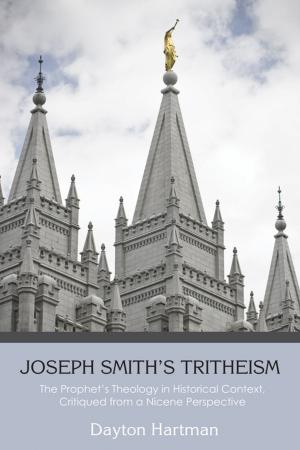Sabbath and Sunday among the Earliest Christians, Second Edition
When Was the Day of Public Worship?
Nonfiction, Religion & Spirituality, Reference, History| Author: | David W. T. Brattston | ISBN: | 9781498244312 |
| Publisher: | Wipf and Stock Publishers | Publication: | April 24, 2017 |
| Imprint: | Resource Publications | Language: | English |
| Author: | David W. T. Brattston |
| ISBN: | 9781498244312 |
| Publisher: | Wipf and Stock Publishers |
| Publication: | April 24, 2017 |
| Imprint: | Resource Publications |
| Language: | English |
According to Christian sources from before the middle of the third century AD, the ancient evidence is unanimous that, although there were a few slight differences as to how weekends should be observed, one thing is certain and was uncontroversial: the main day of the week for early Christians to gather and worship was not the seventh-day Saturday Sabbath, but Sunday, which they sometimes called "the first day" or "the eighth day," or "the Lord's Day." The booklet also considers (1) whether the Lord's Day replaces the Sabbath, (2) whether the Sabbath was abolished, (3) whether Sabbath-keeping is forbidden, (4) whether the Roman Catholic church changed the Sabbath to Sunday, (5) whether Sunday is to be a day of rest as well as the chief day of public worship, (6) a critique of sources and authorities on which Sabbatarians rely in advancing their contentions, (7) whether some Christians before Constantine observed Sunday rather than Saturday to prevent the Roman government from considering them to be Jews, who were allegedly persecuted before his reign, and (8) where readers can find translations of the sources for themselves. Focusing on pagan Roman and Jewish sources, this second edition considers whether Sunday-keeping began as a result of the Jewish revolts of AD 66-70 and/or AD 132-135 and examines the work of Samuele Bacchiocchi.
According to Christian sources from before the middle of the third century AD, the ancient evidence is unanimous that, although there were a few slight differences as to how weekends should be observed, one thing is certain and was uncontroversial: the main day of the week for early Christians to gather and worship was not the seventh-day Saturday Sabbath, but Sunday, which they sometimes called "the first day" or "the eighth day," or "the Lord's Day." The booklet also considers (1) whether the Lord's Day replaces the Sabbath, (2) whether the Sabbath was abolished, (3) whether Sabbath-keeping is forbidden, (4) whether the Roman Catholic church changed the Sabbath to Sunday, (5) whether Sunday is to be a day of rest as well as the chief day of public worship, (6) a critique of sources and authorities on which Sabbatarians rely in advancing their contentions, (7) whether some Christians before Constantine observed Sunday rather than Saturday to prevent the Roman government from considering them to be Jews, who were allegedly persecuted before his reign, and (8) where readers can find translations of the sources for themselves. Focusing on pagan Roman and Jewish sources, this second edition considers whether Sunday-keeping began as a result of the Jewish revolts of AD 66-70 and/or AD 132-135 and examines the work of Samuele Bacchiocchi.















